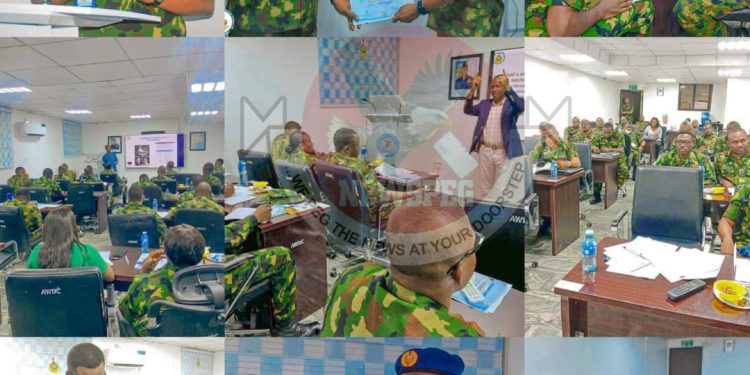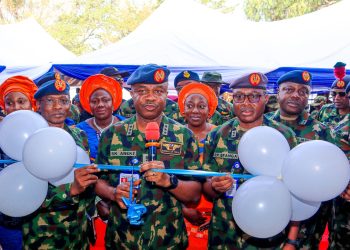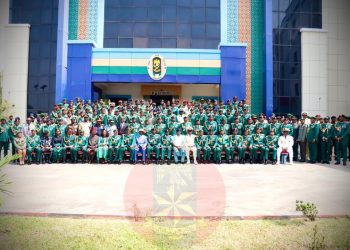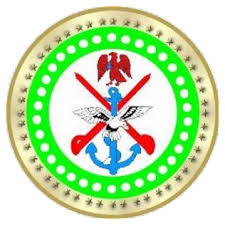By Nkechi Eze
The Nigerian Air Force (NAF) has taken another major step toward strengthening civilian protection in conflict zones with the conclusion of a five-day Civilian Harm Mitigation (CHM) in Air Operations course for the first batch of specially selected officers. The course, which ended on 15 August 2025 at the Air Warfare and Doctrine Centre (AWDC) in Abuja, brought together a broad cross section of NAF personnel including pilots, unmanned aerial vehicle operators, armament specialists, legal officers and public relations experts in line with the Service’s belief that the protection of civilians must be pursued through a coordinated, multi-disciplinary approach.
Director of Public Relations and Information NAF, Air Commodore Ehimen Ejodame, who announced the development in an official statement, explained that the training was conducted on the directive of the Chief of the Air Staff (CAS), Air Marshal Hasan Bala Abubakar, and coordinated through the Civil-Military Relations Branch. The course is being delivered in partnership with Conflict, Security and Development Consult Limited and will run in three batches of about 30 officers each from 11 August to 5 September 2025.
According to the statement, the first group of officers underwent a rigorous training curriculum covering International Humanitarian Law in the context of Nigerian air operations, precision selection of ordnance to minimise collateral damage, application of the Rules of Engagement, Positive Target Identification Methods, targeting categorisation, the No-Strike List (NSL) and the Sensitive Target Approval and Review (STAR) process. Participants also took part in practical modules designed to prepare them for engaging sensitive targets under high operational pressure.
Air Marshal Abubakar described the programme as a direct continuation of the NAF’s Civilian Harm Mitigation and Response Action Plan (CHMR-AP), which was introduced earlier this year. He said, “From the very beginning of my tenure, I made it clear that protecting civilians is not just a moral duty, it is a professional imperative.” He added that the CHMR-AP was conceived as a blueprint to institutionalise that principle by ensuring that every commander, crew and analyst is trained to apply the highest standards of humanitarian consideration in mission planning and execution. The CAS observed that the Action Plan is already yielding measurable results, noting that “we have seen the difference that deliberate planning, real-time intelligence and strict targeting protocols can make. This training takes those lessons further, giving our officers the tools, judgement and mindset to protect innocent lives even in the most complex operational environments.”
Representing the Chief of Civil-Military Relations at the closing ceremony, Air Vice Marshal Edward Gabkwet emphasised that the NAF’s approach goes beyond basic compliance with international law. “When communities see that we take extraordinary measures to keep them safe, we build trust. That trust is a force multiplier; it strengthens intelligence sharing and isolates hostile actors. Protecting civilians is not only the right thing to do, it is the smart thing to do,” he said. With two more batches of officers set to undertake the CHM course between now and September, the NAF has reaffirmed that civilian protection will remain a defining feature of its operational doctrine across all theatres of operation.
















